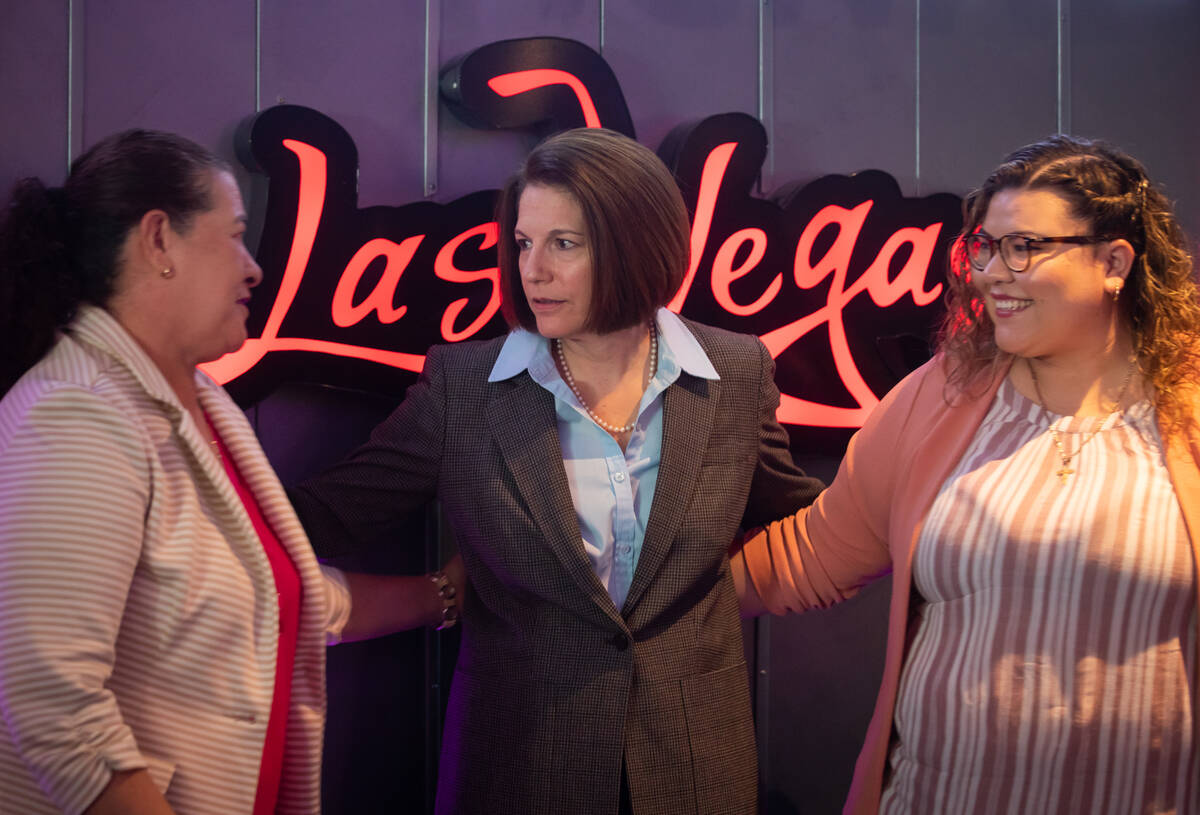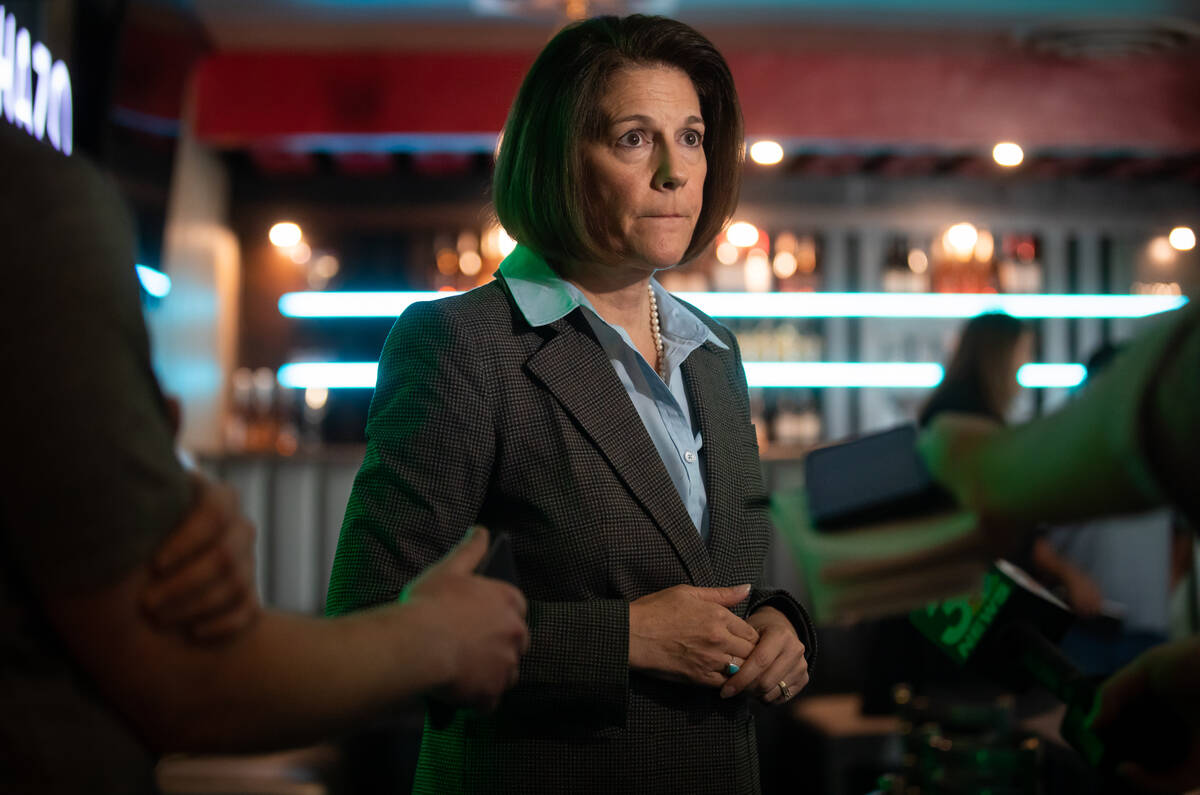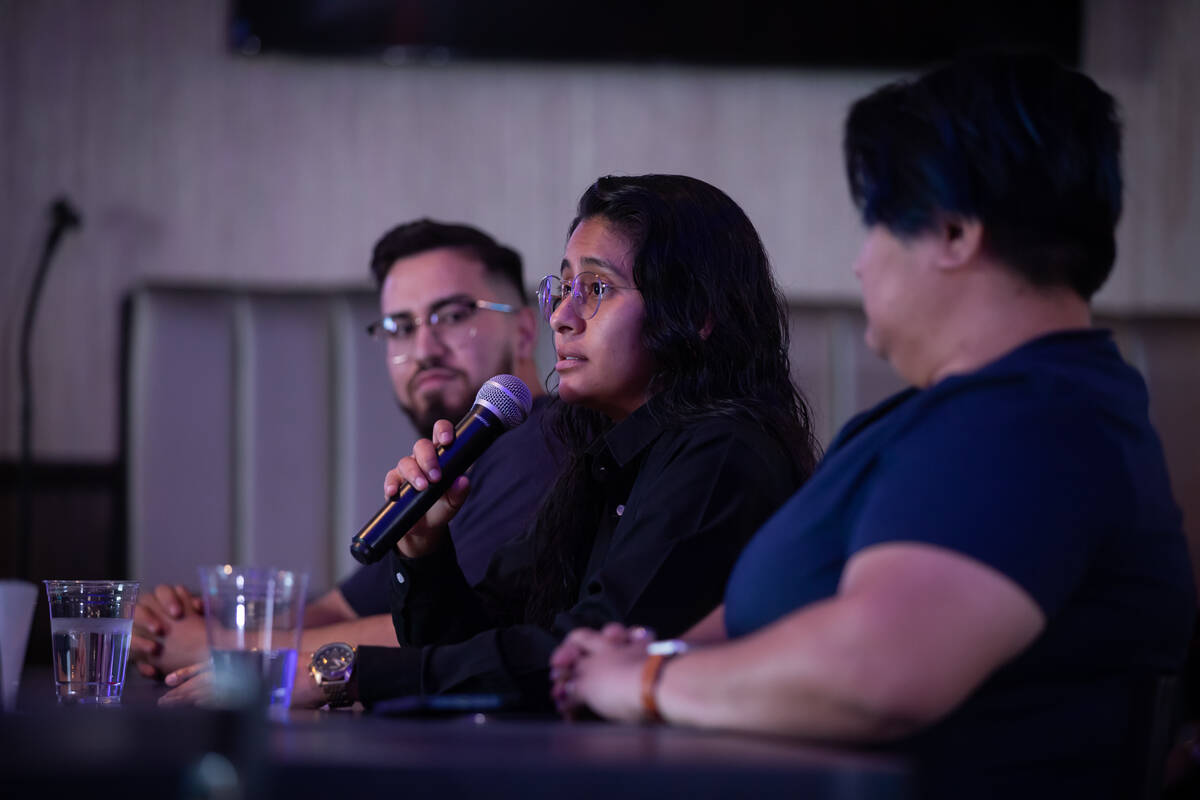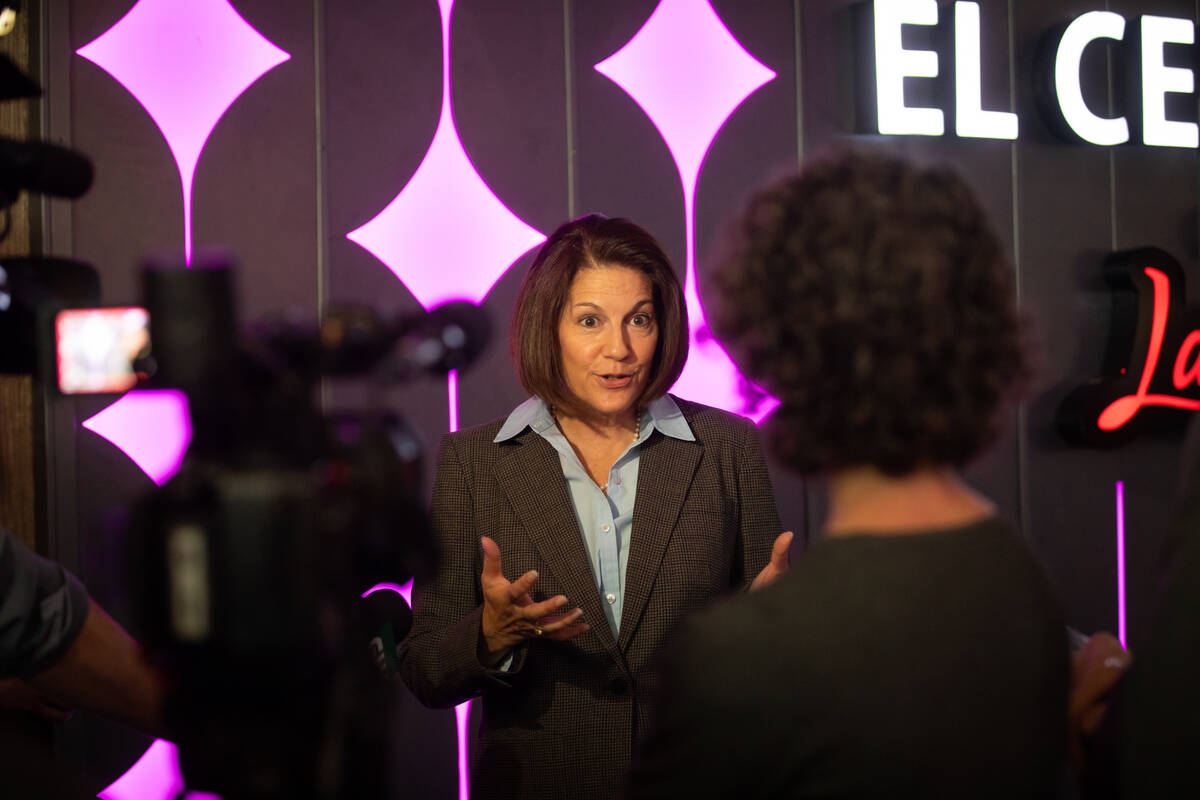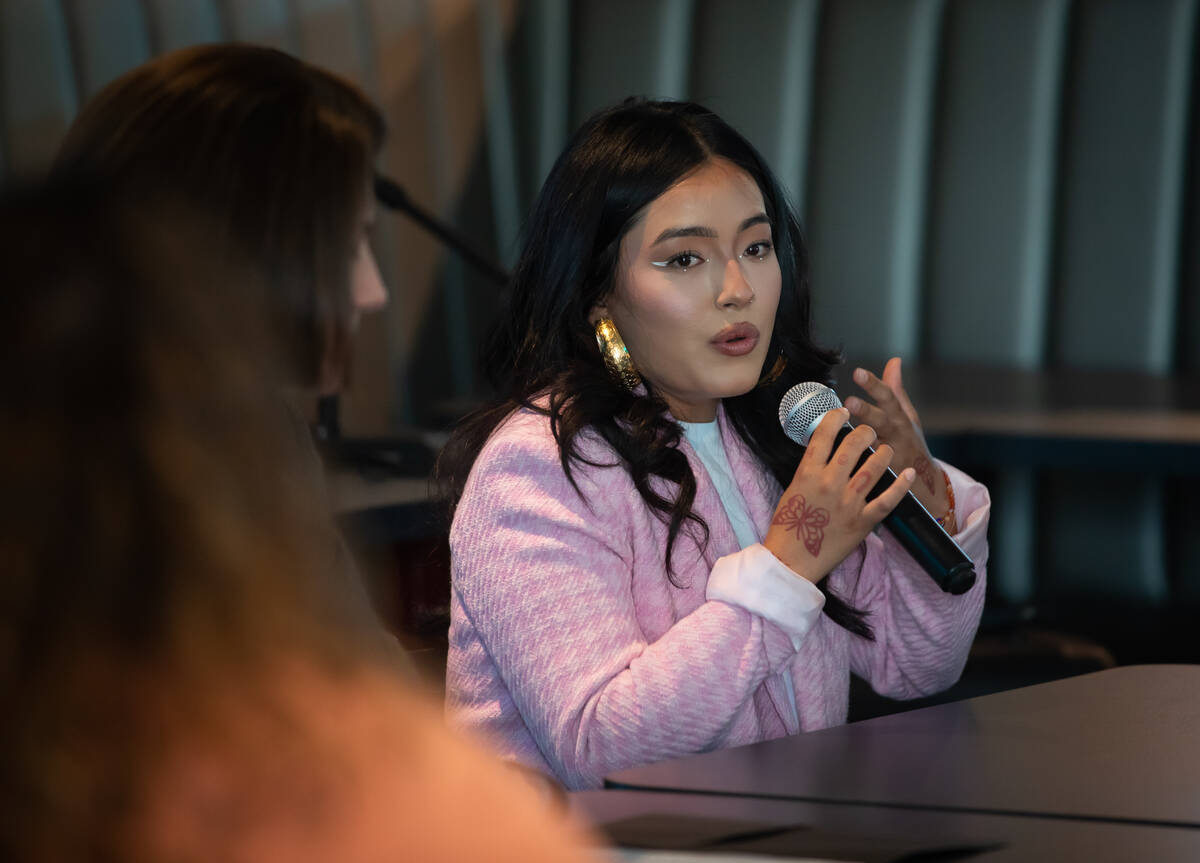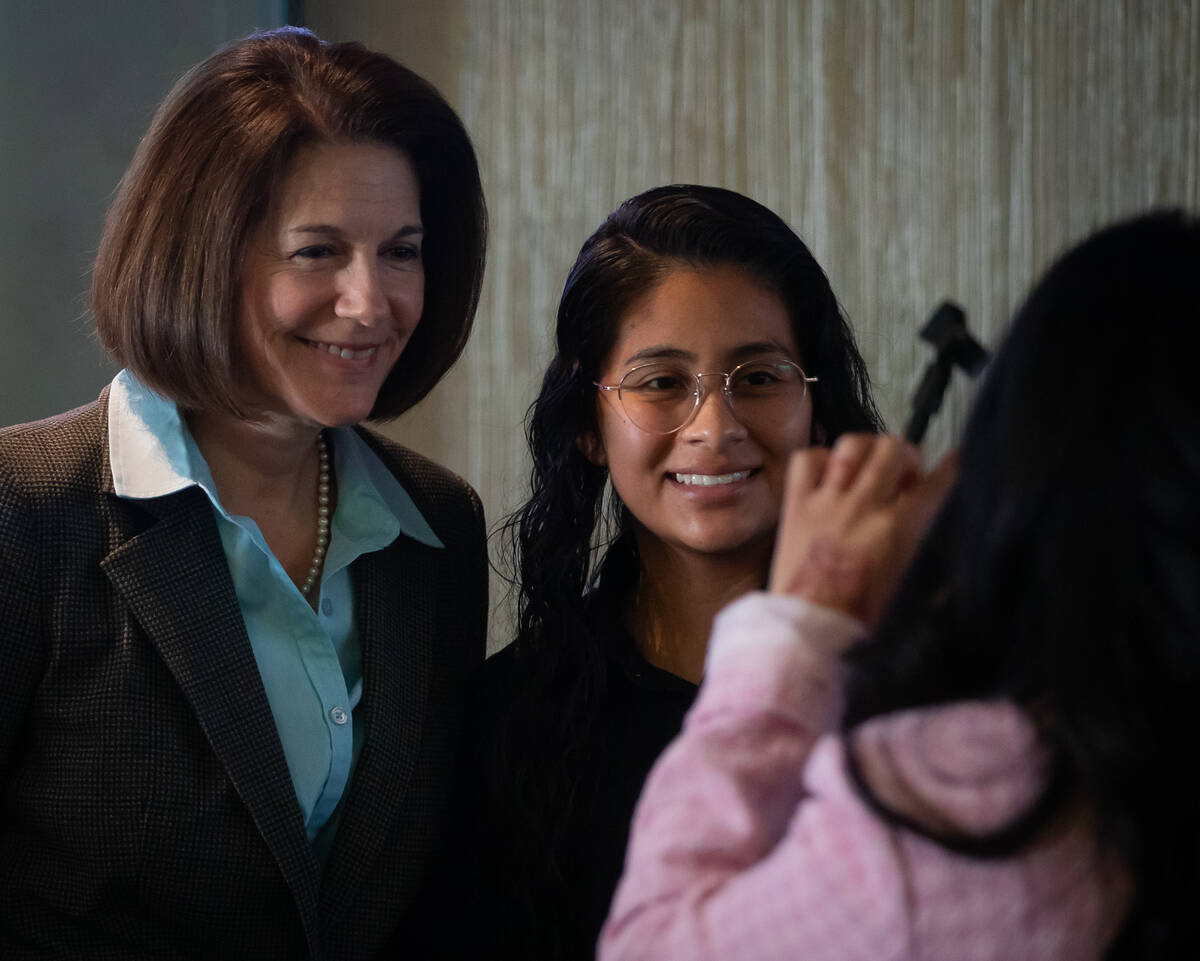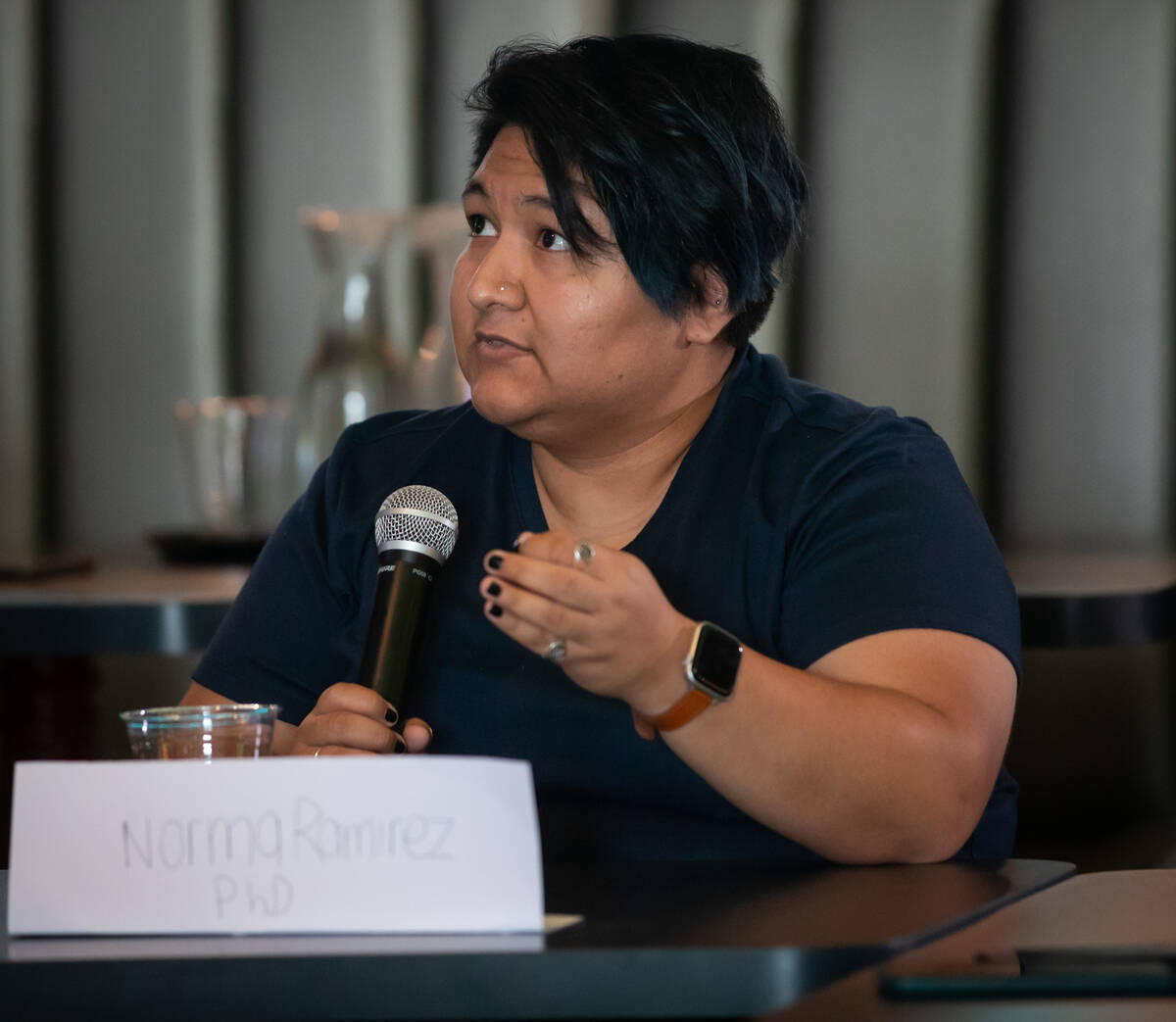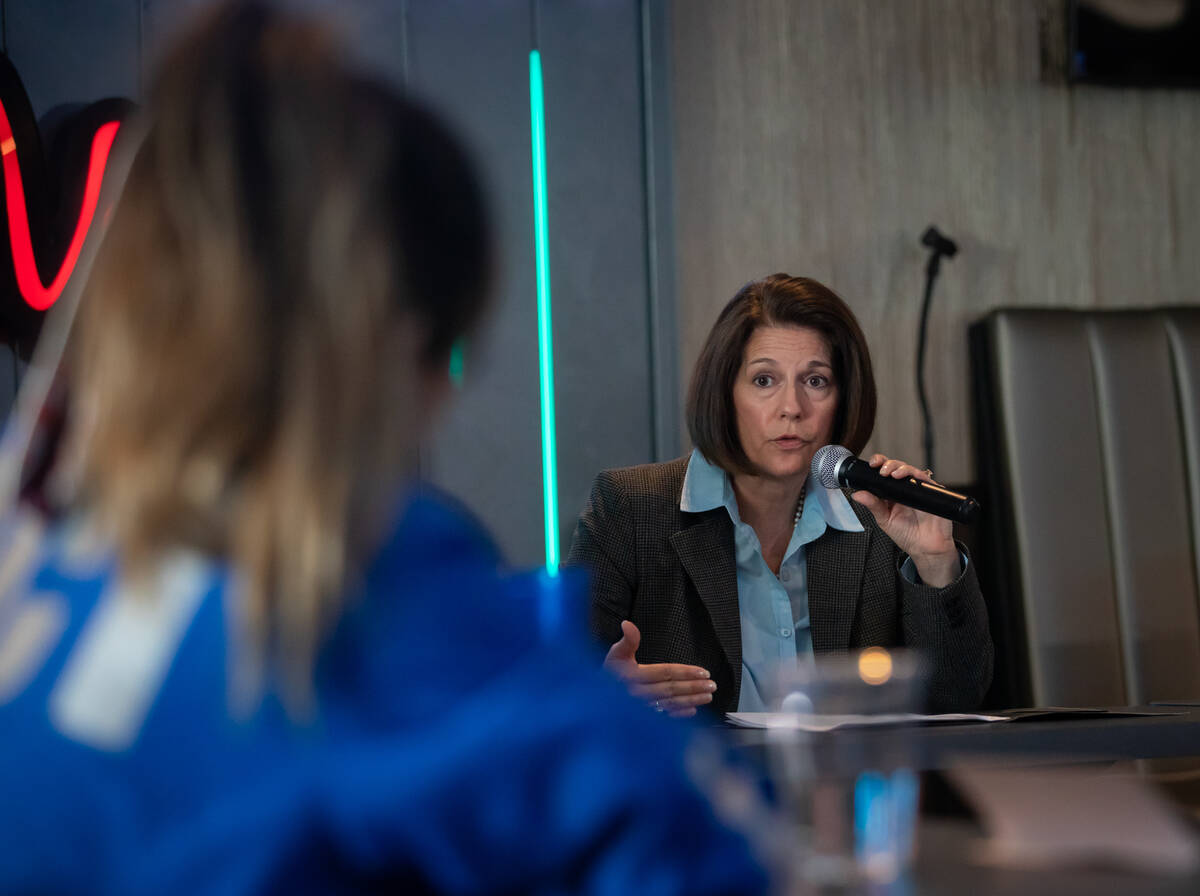‘Dreamers’ share concerns after Texas DACA ruling
Iris Vargas fled Mexico with her mother when she was 12 years old to escape domestic violence.
Before there were deportation protections for immigrants who were brought to the U.S. illegally as children, Vargas worked three jobs to pay for her community college tuition. She took naps in her car and in the library between jobs, and she did her homework during her breaks.
When the Deferred Action for Childhood Arrivals (DACA) program was instated, she became eligible for a work permit and got a job as a receptionist. She worked her way up to a paralegal and was able to enroll at UNLV, and she is about to graduate with a degree in political science. Next year, she will apply to law school, fulfilling a dream.
“Because of DACA, I can dream about law school as a true possibility. It is not just a dream. It is a possibility. But given the recent changes that we have had, that possibility has been threatened. …It is a scary thing to think that law school is not a possibility for myself and my community,” Vargas said.
Last week, the New Orleans-based 5th Circuit Court of Appeals upheld a Texas federal judge’s ruling that Obama-era deportation protections were unlawful. The protective order was remanded to a lower trial court in Texas to take into account revisions President Joe Biden had made.
The decision does not affect the “Dreamers” — immigrants who are protected under DACA, so called because of a never-passed plan in Congress called the DREAM Act — but it halts new applications to the program.
Immigrants spoke at a roundtable Wednesday hosted by Sen. Catherine Cortez Masto, D-Nev., about their worries that the program will be halted entirely, calling on Congress to codify the protections that have been in place for a decade.
In Nevada, 12,100 immigrants are protected under DACA, according to the American Immigration Council, and 14,278 people have been granted the status in the state since 2012, according to a previous Review-Journal report.
Norma Ramirez, who came to Las Vegas when she was 5 years old, joined a lawsuit in 2017 to keep the program alive after President Donald Trump announced he would end DACA. The U.S. Supreme Court blocked the Trump administration’s plan and ruled in favor of the program.
“We won, right? And yet here we are.” Ramirez said.
“We all deserve to have full human lives. I don’t want to just have DACA so I can work. I want to be able to travel. I want to enjoy my life. I want to not worry about what other people think about me, about whether, if I’m driving if there’s a cop behind me or near me. I don’t want to do that anymore. I’m tired,” Ramirez said.
About 616,000 immigrants have DACA status in the U.S., according to the National Immigration Forum, providing them with protections against deportation but also pathways to education and work that can be renewed every two years. Many grew up in the U.S. from a young age and do not consider their birth countries their home.
Jesus Lares, 22, was brought to Las Vegas from Mexico when he was 3 months old. He does not know much about Mexico.
“I’ve grown up here all my life. I feel like I struggled to get where I’m at now,” Lares said.
But thanks to DACA, he is living the American Dream. He got a job and feels he is making enough money to support his family, he said.
“I’m very proud of where I’m at now. I wouldn’t give it up for anything,” Lares said.
Ramirez wants to see real change.
“I want more than just, ‘I’m fighting for you.’ I want more than a tweet in media. I want something that is actually going to provide us with that freedom to be full human beings because we deserve that,” Ramirez said.
Some DACA recipients want to continue working without having their protections in question every two years.
“I hope to continue doing what I do permanently without the shadow of the two-year limit we currently have,” said 33-year-old Anna Ledesma, who works as a pediatric ICU nurse thanks to DACA.
Ledesma moved to Las Vegas from the Philippines with her mom when she was 7 under her dad’s work visa, but after her parents got divorced, her status went to the back burner and she overstayed her visa. During her first semester of nursing school, she was detained for 12 days for being undocumented. Her case was closed after Obama issued the DACA protections.
Cortez Masto said she has pushed for legislation to codify DACA protections, but Republicans have thwarted the attempts. During the Trump administration, Congress brought forward bipartisan legislation protecting DACA, but Trump had vetoed it.
She said she is meeting with the Biden administration, urging it to take action to protect DACA recipients since it has been threatened. There are changes that can be made in the existing law that she is looking at, and she is continuing to try to pass legislation, she said.
“We have ideas and we are talking with them now about the next steps, and what they should be doing and being very vocal about it. Because we are not giving up,” Cortez Masto said.
While criticizing people for “playing politics” with the issue, Cortez Masto called out her Republican opponent Adam Laxalt, saying he fought deportation protections when he was attorney general and will continue to hurt families.
“There are some of my colleagues who don’t care. And they’re playing politics with it so they can gain control and power and do nothing with it. It does require us to talk about who is running for office, who is with us and who isn’t. And knowing the truth. … (Laxalt is) just one of many who are just like this, playing politics with your lives,” Cortez Masto said.
Laxalt’s campaign spokesperson Brian Freimuth said in a statement that Nevadans do not trust Washington, D.C., to reform immigration laws until it stops the flow of illegal immigrants crossing the southern border.
“Cortez Masto falsely claims the border is secure. This is a lie. Border Patrol has seen more than 4.4 million encounters since Biden took office. Once our border is under control, we need an efficient, merit-based immigration system that works. But none of that is possible if there is no incentive to comply with our rules,” Freimuth said.
At the roundtable, Cortez Masto said Congress can do both: improve border security and fix the immigration system.
“We can have strong border security. I’ve worked on those issues as attorney general. I’ve worked on them as senator. We can stop the drug trafficking, weapon trafficking, human trafficking on the border. We can shore it up. But we also can fix a broken immigration system and treat people with dignity,” Cortez Masto said.
Contact Jessica Hill at jehill@reviewjournal.com. Follow @jess_hillyeah on Twitter.



